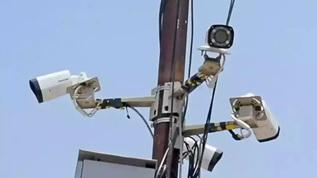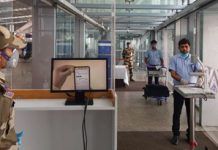Noticing a considerable fall in crimes in areas monitored using closed circuit television (CCTV) cameras, the police across the State are planning to expand CCTV networks with public participation. Accordingly, the support of residents’ associations, social organisations, and institutions will be mobilised to improve coverage in such a way that manual policing can be reduced in vulnerable areas.
A recent review by senior police officers found that Kerala was yet to explore the possibilities of enhancing CCTV surveillance. The delay in making it a mandatory requirement like the fire alert system is said to be a reason why the system is not properly explored.
“We feel that there should be increased awareness among the public about the role of well-networked CCTV surveillance in crime prevention. It is encouraged because CCTV visuals can give strong digital evidence in crime investigation, apart from discouraging criminal activities,” said T. Vikram, Inspector General of Police (North Zone). He felt that criminal activities could be curbed with the improved 24×7 public surveillance using high-end cameras.
“Thrissur has set a comparatively good model in third-eye surveillance. Kozhikode is yet to meet expectations as enhanced civic participation is required to cover more areas,” said Mr. Vikram who is keen to address the void with public-private participation initiatives. “We have already instructed officers to consider convening meetings with residents’ associations and discuss the scope of rolling out the system in all areas. People’s representatives can also support such projects by setting apart funds,” he said.
In Kozhikode, there have been model projects aplenty, but non-cooperation on the part of some segments, including residents and merchants’ forums, is playing spoilsport. As of now, only 100 cameras are reportedly functional within the Kozhikode city limits offering 24×7 surveillance on select locations.
The proposal to link cameras, installed by various private groups in public spaces, with the police control room has not been implemented with a few raising privacy issues. Also, merchants’ associations are yet to offer their full cooperation.
Meanwhile, some residents’ association functionaries said the usual practice of the police to seize the costly digital video recorders (DVR) as evidence from crime spots caused headache for their owners, apart from the financial loss they face. There should be a system to copy visuals other than seizing the DVR and asking the owners to wait till the conclusion of court procedures to return it, they pointed out.








